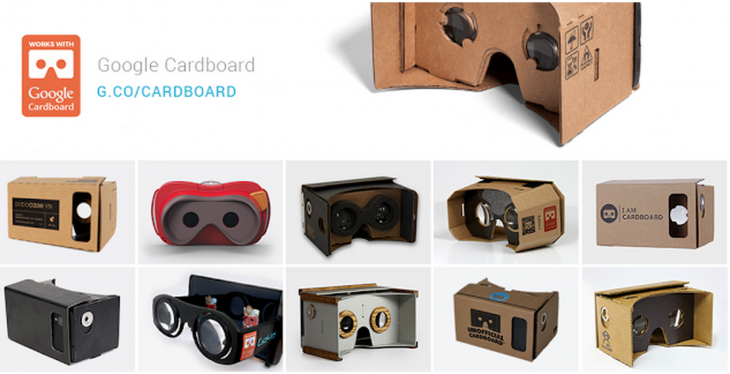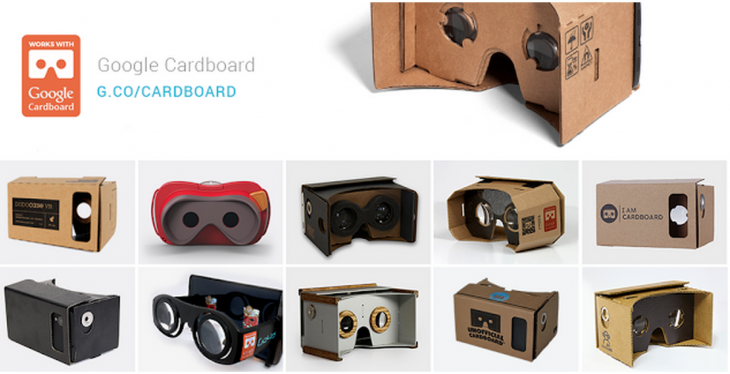
Google surprised the tech world at Google IO 2014 with their off the cuff ‘announcement’ of the Google Cardboard project. Jump forward 20 months and Cardboard has gone from success to success. As we approach Google IO 2016 the rumours and reports of Googles next VR project are beginning to intensify. Case in point, today the Financial Times are reporting that Google will most likely show off their next VR offering at Google IO 2016.
According to the all famous ‘people familiar with the matter’, Googles next VR product will feature integrated sensors, improved lenses and a more robust material design (ie not made of cardboard). After announcing recently that more than 5 million cardboard units had been shipped, it’s easy to see why Google would want to take Cardboard to the next level, especially when longtime partner/ rival Samsung have been developing their Gear VR hardware and platform so rapidly.
One major advantage of a Google-developed VR offering would be wider more ubiquitous support for Android, and perhaps iOS, devices. A major criticism of the Gear VR line from some tech pundits has been its lack of interoperability outside a very narrow line of Samsung phones. If correct we could very well see a new Google VR hardware product that includes some of the hardware required to improve the performance of the VR experience such as reducing the nausea enduing latency and lag.
New hardware is nice, however, the hardware is only half the storey. If I had to sum up in one word what technology has become in recent years I would choose siloed. Modern tech companies are obsessed with “controlling” the platform. Open standards and interoperability have given way to closed platforms and propitiatory standards. If we’re honest Google is no different to any other large company in this aspect, they want you on their platform and VR is just the next thing.
To this end, it has been long rumoured that Google has been developing an Android-based VR “operating system“. Whilst it is unlikely that we will see a specific fork of Android to create a new VR OS at IO 2016, in a similar vein of the Brillo fork/ subset of Android, it is highly likely that Google will release a new SDK specifically for developing for VR on Android and include the requisite code requirements to run the next generation of VR in Android N.
With many speculating that VR will be the next big platform, which at this stage seems to be a self-fulfilling prophecy, we can expect more exciting VR developing in the months and years ahead. With Googles track record of multi-platform interoperability and open source projects, I for one am more hopeful about a Google lead platform than a more rigid closed platform of their competitors.
Are you expecting VR, or AR, to be the next big thing? Discuss.




